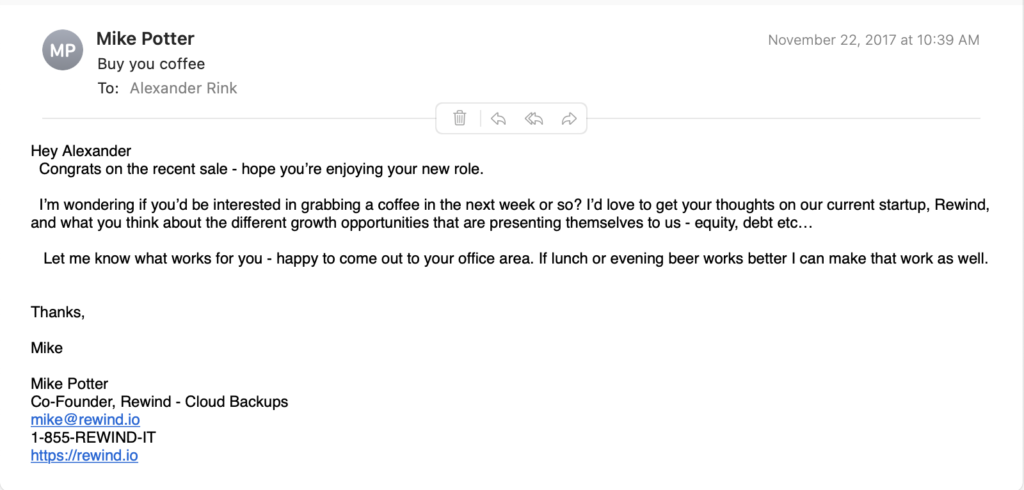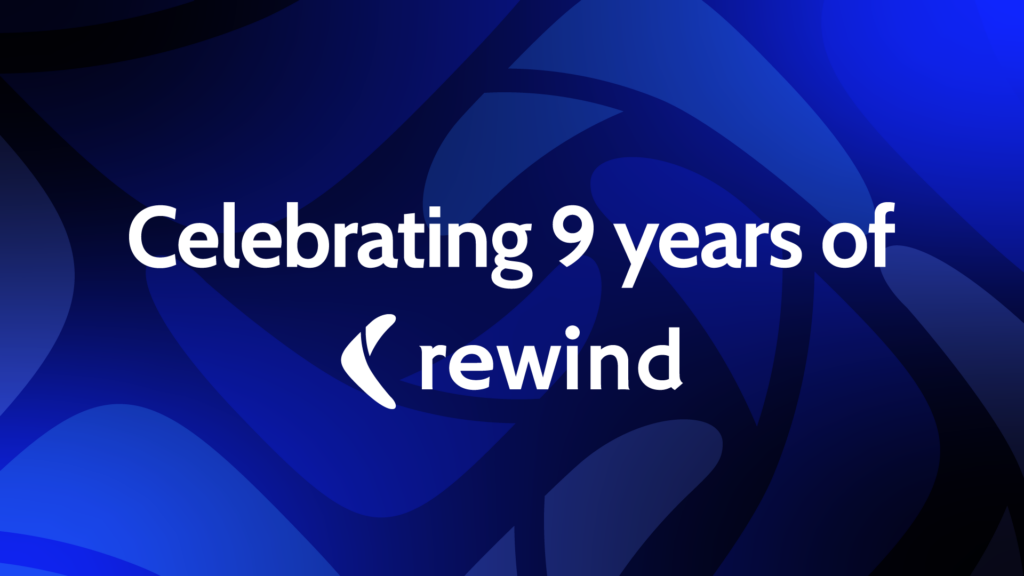Scaling a business is a lot like raising puppies.
Hold on, stay with me now.
Startups, like puppies, grow rapidly. Every day, there are new challenges, hurdles, and surprises. I’m often so busy chasing after them it’s hard to take the time to realize just how much they have grown. Consistent growth means we become used to seeing continual change, often at a gradual pace.
Despite how it appears to me, the first thing I hear about my dogs is usually “wow, they’re getting so big!” Yet, in my perspective, they look the same as they did yesterday.
Daily, incremental growth quickly becomes exponential growth, but an external perspective is necessary to see it.
For me, business advisors and mentors are those external perspectives. With the benefit of distance, they are able to accurately see growth patterns. They’re able to spot trends that are invisible to those involved in the day-to-day operations required to run a business.
I’ve been lucky enough to benefit from the advice and expertise of both a mentor, Alexander Rink, and a leadership coach, Trefor Munn-Venn. While the words are often used interchangeably, there is a distinct difference to me: a coach is someone who can assist a wide variety of individuals with essential skills for all levels of the startup journey, whereas a mentor is someone with specific experience and expertise in your particular field or situation.
At Rewind, we believe in the power of continuous learning (all employees have a knowledge budget of $5000/year for professional development). In the spirit of giving back and continuous learning, I’d like to share some of the most impactful advice I’ve been blessed to receive.
Find your Sherpa
When Alexander Rink, one of my most trusted advisors, went to the Himalayas on a climbing trip, he used the services of a local guide. He benefited from the years of experience, local knowledge, and instincts of the indigenous people in the area.
A good business advisor is like a sherpa. They’ll guide you through common pitfalls, point out unseen traps, and generally make your life much easier. Sure, you could climb that mountain (or build that business) all by yourself – by why?
Good judgment comes from experience, and experience comes from bad judgment. When you take guidance from people who have already done what you’re trying to do, you can benefit from their previous mistakes. Their previous bad judgment becomes experience, which you can use to make better decisions (without having to make the mistake yourself). To find a mentor that’s right for you, start by looking at your team. You can invite team members to join a free mentoring software tool where everyone will build a profile with what skills they’re trying to grow. The tool then automatically matches everyone based on who’s most relevant. This can fast-track your search and make breaking the ice a little easier.
Be Mentor-able
“The first thing I’m going to ask is, on a scale of 1-10, how ready are you to change?” says Trefor Vann-Munn, a leadership coach I’ve had the pleasure of working with.
“Typically, you get a lot of 10 answers. But I’m the most intrigued by people who are more realistic and honest. One person said 4 – I knew he was really thinking through the difficult changes and uncomfortable conversations ahead, and honestly assessing himself. I want to work with individuals who are ready to do the hard work required to uncover better versions of themselves.”
Alex has another witticism that speaks to me: you can’t push a string. Meaning, the first step to change is wanting to change.
So how can you communicate that you’re a quality string, ready to be pulled? A good way to start is simply to ask. Send an introduction email, ask for advice, and build relationships with people who are doing what you want to do. Most people are willing (and flattered) to help – if you ask them nicely.

Learn How to Say “I Don’t Know”
“People are successful to the extent that they ask others for help,” says Alex.
The ability to admit what you don’t know is one of the most difficult, and rewarding, skills a leader needs. After all, you don’t know what you don’t know – by definition, only others can point out the gaps in your perspective. To a fish, the entire world is an ocean. The perspective of an external advisor can help lift you up out of the ocean for a birds-eye view of the entire landscape.
Abandon Perfection
“A standard of perfection is no standard at all,” was difficult advice for Trefor to understand originally. “A mentor of mine pointed out that when I have perfection as a standard, I’m holding myself to something that doesn’t exist. There’s no such thing as perfect, so striving for it is doomed to fail.”
Trefor recommends pausing and considering what you’re actually trying to accomplish, instead of using “perfect” as a catch-all goal. “Perfect is meaningless. Strive for excellence, meaning, richness, usability, or completeness – but abandon perfection as a goalpost, because you’ll never reach it.”
Invest in People- and Yourself
We’ve all heard this cliché, but I firmly believe that it’s the truth; the success of Rewind is due to the incredible people who work daily to solve problems, build new solutions, delight customers, and of course, restore data.
Finding, hiring, and retaining those great people, however, is a whole new challenge. This challenge required me to develop a new skill set: emotional intelligence.
Emotional intelligence, or EQ, is often thought of like height – you either have it or you don’t. You’re either tall, or you’re short. However, EQ is more similar to a skill like reading. Nobody is born knowing how to read: we practice and practice until it’s second nature. Everyone has the basic capacity to do so, but a good teacher makes the process infinitely easier. EQ is a skill like any other: practice makes perfect.
Know When you Don’t Need Advice
Perhaps the most influential piece of advice I’ve received wasn’t even advice at all. It was simply the validation of “sure, you could do that” when I discussed the possibility of a “Seed B” fundraising round with Alex in early 2020.
After watching Shopify’s explosive growth (and subsequent funding), I wondered, “why doesn’t Rewind do that?” Alex told me Rewind could absolutely raise a Seed B round, and this is what we’ll need. He assisted with putting together term sheets, interviewing investors, and finalizing the deal.
While all of that was important, the critical ingredient he provided was trust: he trusted in the team’s ability to bring a great product to market. He trusted in me to lead them. Suddenly, the impossible task of scaling this business didn’t seem so impossible anymore.
Alex also introduced me to an old Nigerian proverb that I think is relevant here:
If you want to go fast, go alone. If you want to go far, go together.
I would add that if you want to go to the top of a mountain, it’s a good idea to enlist the help of experienced climbers. If you want to see just how big your dogs have grown, go to a vet. And if you’re struggling with how to scale up your business (or even how to turn your idea into a business at all), some external perspective and advice from a mentor are invaluable. So raise your hand, ask that question, send that email, and practice the most important phrase a leader should know: “I don’t know. Can you help me?”
Hopefully, some of this advice was helpful for you. Even if it wasn’t, at least you got to see two of Orleans’ cutest pups.

If you’re interested in joining a culture of continuous growth, Rewind is hiring.



